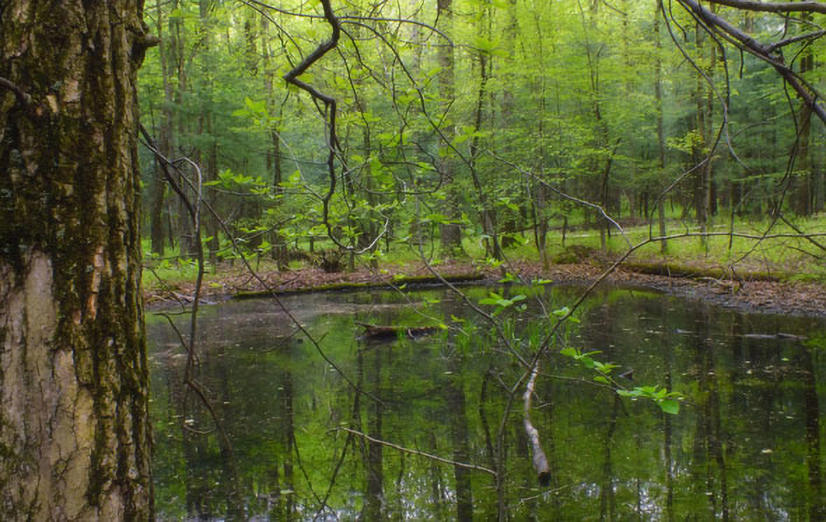
The value of wetlands extends beyond evenings in early spring, when a chorus of peepers makes the woods come alive with the sound of their music. Or when you stumble upon a male wood duck in a secluded forest pond— and marvel at its colorful beauty.
Wetlands of all sizes provide real economic benefits by recharging groundwater, mitigating floods, and cleansing pollutants out of runoff water. Despite these essential services, small and seasonal wetlands are often underappreciated and under protected.
Many rural and suburban neighborhoods rely on groundwater; for example, in Dutchess County, New York there are nearly 35,000 private wells. There, adequate groundwater recharge is a growing issue, as warmer summer temperatures increase soil moisture evaporation rates and reduce percolation of surface waters.
Small seasonal wetlands called vernal ponds are effective at transferring surface water to groundwater. Their usefulness extends beyond their precise location on the landscape. Buyers of property in which nearby wetlands have been destroyed may find their well water limited and require municipal supplies—a real cost to all taxpayers.
Temporary wetlands that form in the spring are important breeding grounds for amphibians, which control mosquitoes during the period when water is present. These small depressions capture surface runoff from thundershowers, reducing the risk of flooding in downslope regions. They are also home to bacteria that are effective at removing nitrogen pollution from runoff waters.
It’s not that larger wetlands don’t also perform these tasks, but a natural array of smaller wetlands across the landscape enhances these important ecosystem properties that we all depend on.
**********
—This segment was adapted from an essay by Dr. William H. Schlesinger. You can read the original piece on his blog Citizen Scientist.
Produced in collaboration with WAMC Northeast Public Radio, this podcast originally aired on July 2, 2015. To access a full archive of Earth Wise podcasts, visit: www.earthwiseradio.org.
Photo courtesy of Nicholas A. Tonelli.







